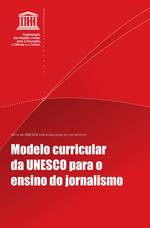Journalism Education

© UNESCO
UNESCO’s support for journalism education is underpinned by a strong conviction that professional journalistic standards are essential to bring out the potential of media systems to foster democracy, dialogue and development.
Professional news media acts as a guardian of public interest. It is an important component of the checks and balances that form part of a democracy. By disseminating trusted information to citizens, the news media enables citizen participation in development and strengthens accountability feedback mechanisms. Citizens cannot exercise and enjoy their citizenship in the absence of crucial information and knowledge, which well-trained journalists are better placed to provide.
However, recent trends in the last few years have placed journalism under fire. A range of factors are transforming the communications landscape, raising questions about the quality, impact and credibility of journalism, making UNESCO’s Excellence in Journalism Series a crucial repository for journalism education and training worldwide.
Journalism educators can explore UNESCO’s offer, which includes syllabi on Journalism, ‘Fake News’ and Disinformation, handbooks to assist journalists on reporting climate change, including in Africa and the Asia-Pacific region (coming soon), Teaching Journalism for Sustainable Development, a Model curricula for journalism education and Compendium of new syllabi and, in the coming months, a model curricula for Gender, Media and ICTs.
The model curricula and handbooks are designed to be used as an entire course, or can be used in bespoke ways to suit the media landscape and the needs of journalism students at the local level. They have been developed by experts who are at the cutting edge of journalism education and are presented in a variety of formats and languages.
Learn more:







